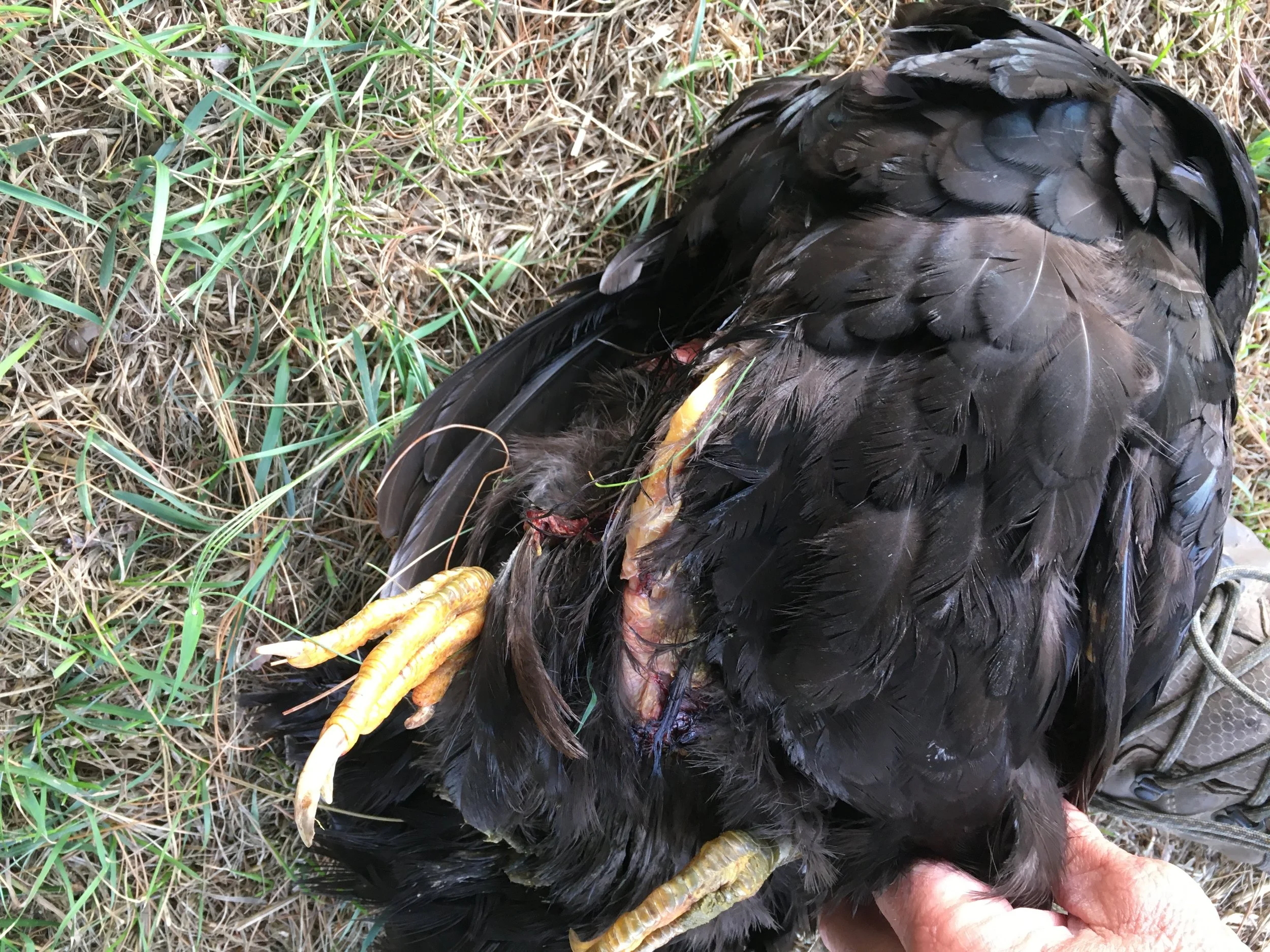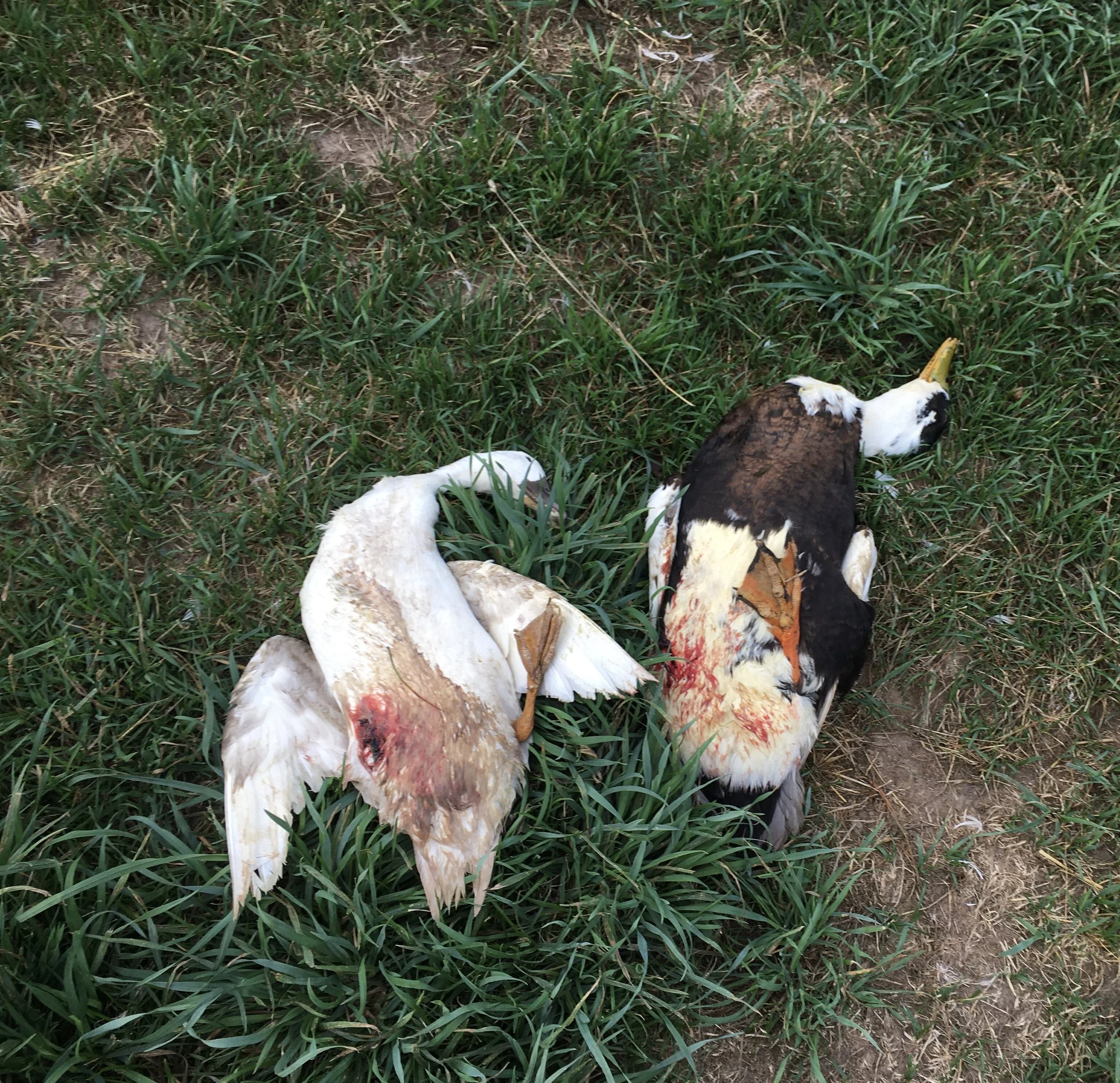Farm journal: losing birds to predators
We have had a running battle with raccoons. Yesterday the score was 4 lost ducks to 9 raccoons to feed the vultures, crows and eagles. The raccoons upped their game last night.
This is never a good sign.
The damage to the yurts indicate that the raccoon climbed over the outer fence into the pasture, lifted the tarp, chewed through the chicken wire, and then snacked on chicken breast and duck legs. Today we make an emergency run to buy hardware cloth (which is raccoon-proof) and install it around all the summer yurts.
Lil’ Blackie was one of our geriatric chickens. She was a broody hen. After she hatched her last clutch of eggs two years ago, she stopped being able to perch. Broody hens will stop eating and drinking while they sit on a nest for three weeks. It takes its toll. We put her in the duck pasture with two other geriatric chickens who were being pecked to death by the young chickens. The others, Mr. Whitey and Boyo, can still roost, which protects them from this type of predation.
Ducks are ground dwellers. If they could, they would spend the night on a pond, beyond the easy reach of raccoons. And fox. And weasels. Last night, the raccoon reached through the hole it made in the chicken wire, caught a duck by their leg and pulled/bit the leg off. These two ducks, who were Pearl and Electra, died of blood loss.
This previously anonymous Pekin survived the loss of her leg. She will now be known as Bob. Michael noticed that she can still get around on her one remaining leg, so we will see if she can survive sepsis and heal.
We filled our metal wash tub (what my father called a “tina”) and cleaned her up. I put on antibiotic cream (a lot!), a gauze pad and then wrapped it all with that type of bandage that sticks to itself but not to anything else. We put her in the winter coop with Fawn, our last duck from our original flock. Ducks need companionship. But Bob doesn’t need competition for food and water, so we chose a calm duck to go with her. This is a ridiculous thing to do from an economic standpoint. But these ducks were in the “do not kill” pasture, which means we could form attachments to them. Michael’s uncle, who farmed this land when Michael was growing up, would have certain milk cows he would pasture until they died. He figured they had been exceptionally good cows and deserved a retirement. If Bob lives, she will have earned her place in the permanent coop, for pure grit if nothing else.





